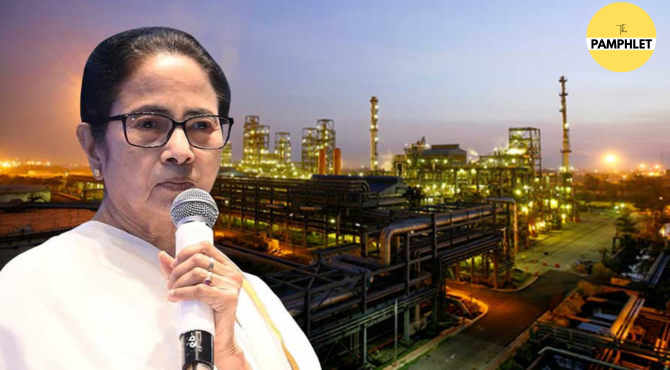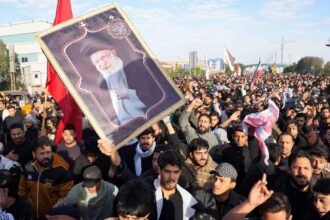The West Bengal government has taken a decision that goes far beyond routine policy-making. Chief Minister Mamata Banerjee has revoked all industrial incentives granted in the state since 1993, including electricity concessions, tax rebates, and subsidies. The decision has been applied retrospectively, effectively declaring past promises invalid and giving the government the right to reclaim benefits already granted.
This move has triggered widespread concern across business circles and legal corridors alike. At its core lies the fundamental question: is this a matter of economic reasoning, or political calculation ahead of the 2026 Assembly elections?
The historical context of decline
West Bengal’s industrial decline is a long-running saga. For thirty-five years under Communist rule, industries were demonized as exploiters and “class enemies.” Strikes, gheraos, and political violence hollowed out the state’s industrial foundations. Prominent business families such as the Birlas and Singhanias relocated their operations to Delhi and Mumbai.
When Mamata Banerjee rose to power in 2011, many believed the state had reached a turning point. Expectations were high that Bengal would finally reverse its economic stagnation. However, the signs were already visible in 2008 when, as Opposition leader, Banerjee drove the Tata Nano project out of Singur. That episode foreshadowed the state’s continued hostility toward large-scale industry, even under new political leadership.
The exodus of companies
Between 2011 and 2025, Bengal witnessed the departure of more than 6,600 companies, including 110 publicly listed firms. This mass exodus underscored the persistent challenges of doing business in the state. Despite a change in political leadership, the underlying mindset remained constant: industries were seen not as partners in development but as expendable entities, while the vote bank was treated as the actual constituency.
The newly introduced 2025 law reinforces this perception. Industrial groups such as Dalmia and Birla are facing losses worth ₹430 crore alone. Many others remain uncertain, unsure of their future in the state. For investors, the message is clear: policy promises in Bengal cannot be trusted.
Legal and economic ramifications
At the center of the dispute lies the principle of Promissory Estoppel, a legal doctrine that prevents a government from withdrawing promises on which businesses have relied to make investments. By applying its decision retrospectively and overriding ongoing cases in courts and arbitration, the state government has undermined both legal safeguards and investor confidence.
The potential fallout is severe. Retrospective policy changes not only discourage fresh investment but also erode the state’s credibility in financial markets. For industries already struggling with infrastructure bottlenecks and political interference, this move could be the final blow, leading to a significant economic downturn.
The politics behind the decision
Mamata Banerjee has defended the policy shift by arguing that the funds previously extended to industries will now be redirected to schemes for the “marginalized community.” These schemes are intended to uplift those who have been historically disadvantaged and are often the most vulnerable to economic downturns. The narrative suggests a redistribution of resources in the name of social justice.
Over the past fourteen years, billions of dollars have been allocated to programs such as MGNREGA and various welfare funds. However, the effectiveness of these programs in permanently lifting beneficiaries out of poverty is questionable. The proposed redirection of funds from industries to these programs raises concerns about the impact on the ‘marginalized community’. Will this redistribution truly benefit them, or is it a political move aimed at consolidating a voter base?
The timing of the decision is telling. With the 2026 Assembly elections approaching, the move appears less like an act of reform and more like a calculated attempt to consolidate a political base. Industries, once again, have become the easiest sacrificial lamb for electoral gain.
Consequences for Bengal
The implications of this policy are predictable and grim. Investors are likely to withdraw further, leading to a more profound crisis of unemployment. Without industrial growth, the state risks being locked into a cycle of stagnation and poverty.
For Mamata Banerjee, however, the calculation is different. In the short term, political gains may outweigh economic losses. But the long-term price will be paid by Bengal’s youth, its workforce, and its future prospects, as the state risks being locked into a cycle of stagnation and poverty.
Conclusion
The revocation of industrial incentives in West Bengal is not merely an economic decision; it is a strategic political move. It raises a stark question: is Bengal being steered toward genuine social justice, or is it being pushed deeper into poverty for the sake of electoral advantage?
Whether the “marginalized community” will truly benefit from this decision remains doubtful. What seems more certain is that the state’s industries have been dealt yet another devastating blow, and Bengal’s journey toward economic revival has been set back further.








